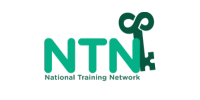Professional Development
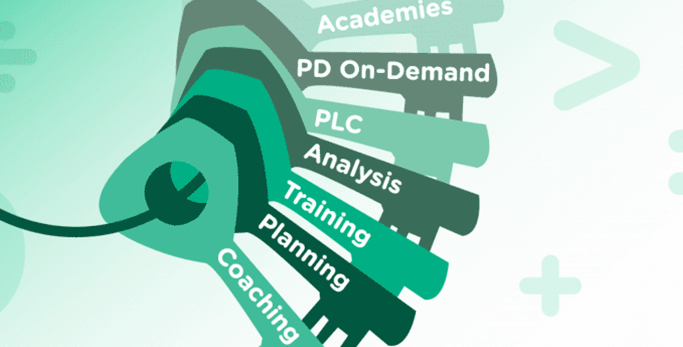
As teachers increase their conceptual understanding of mathematics, they can apply a variety of strategies to support students in acquiring foundational understanding. For the teacher, this includes not only a deeper understanding of the mathematical concepts but also having the pedagogical tools to be able to use effective instructional methodologies to reach all students.
NTN uses a Seven Key approach to professional development. All “Seven Keys of Professional Development” are necessary to successfully implement NTN methodologies, develop and deepen teachers’ content knowledge and pedagogy. Eliminating one of the keys could compromise the fidelity and success of the professional development model; therefore all seven keys are provided to each school in which we partner.
The Seven Keys of Professional Development are:
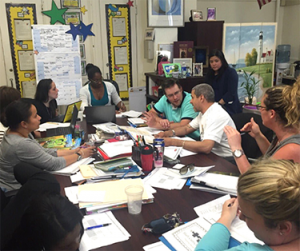
Teacher Training:
Intensive training session(s) designed to deepen teacher’s content, pedagogy, and understanding of grade-level standards.
During the Intensive Training everyone is guided through a series of grade-level specific topics and methodologies. The training is designed to focus both on the development of the mathematics content and the methodologies used to deliver this content to students. During Level 1 of intensive training, teachers work in collaborative pairs and use the same strategies and materials that students will use in the classroom. The training environment simulates a classroom for both content and pedagogy through a highly structured guided discovery model. This model incorporates concept based instructional strategies aligned to the Standards for Mathematical Practice using multiple representations while encouraging active engagement of all participants. Teachers also practice teaching using the learning paradigm.
Teachers are expected to be masters of their curriculum and equipped with the best teaching practices that research has determined to be successful for students. However, teachers often report that they are unprepared to utilize reliable strategies in their classrooms to assist students with content comprehension. (Brownell, 2007) To foster students’ conceptual understanding, teachers must have rich and flexible knowledge of the subjects they teach. In particular, they must understand the central facts and concepts of the discipline, how these ideas are connected, and the processes used to establish new knowledge and determine the validity of claims (Anderson, 1989; Ball, 1990, Borko & Puthnam, 1996; McDiarmid, Ball & Anderson, 1989).
Citations
Anderson, C. W. (1989). The role of education in the academic disciplines in teacher education. In A. Woolforlk (Ed.), Research perspectives on the graduate preparation of teachers (pp. 88-107). Englewood Cliffs, NJ: Prentice Hall.
Ball, D. L. (1990). The mathematical understanding that prospective teachers bring to teacher education. The Elementary School Journal, 90, 449-466.
Borko, H., & Putnam, R. (1996). Learning to teach. In D. Berliner & R. Calfee (Eds.), Handbook of educational psychology (pp. 673-708). New York: Macmillan.
Brownell, M. T., Haager, D., Bishop, A.G., Klingner, J.K., Menon, S. Penfield, R., & Dingle, M. (2007, April). Teacher quality in special education: The role of knowledge, classroom practice, and school environment. Presented at the annual meeting for American Education Research Association, Chicago, Illinois.
McDiarmid, G. W., Ball, D. L., and Anderson, C. A. (1989). Why staying one chapter ahead doesn’t really work: Subject-specific pedagogy. In M. Reynolds (Ed.), Knowledge base for the beginning teachers (pp. 193-205). Oxford, England: Pergamon.
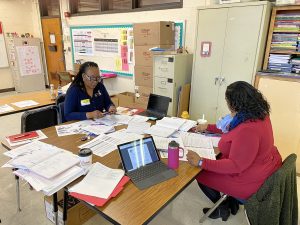
Curriculum Planning:
Collaborative and individual planning sessions with teachers to assist with the development and implementation of the grade-level curriculum maps, lesson plans, and concept-based lessons.
During this Curriculum Planning, a team from NTN will conduct an initial curriculum audit to determine whether the curriculum maps need any refinement, as well as help identify any holes in the curriculum maps, with suggestions of how to fill those holes. Teachers then work with the NTN Coach to participate in regular Curriculum Planning sessions both collaboratively and individually throughout the year. During these sessions, teachers prepare to implement these methodologies and based on the content areas identified by ongoing assessment that students continue to struggle with and the next unit outlined in the curriculum guides.
NTN professional development is collaborative. Professional development is most effective when driven by educators, is classroom-based, and concentrates on how students learn mathematics. (Garret, et.al, 2001).
Unfortunately, many professional learning programs have failed to bring about much change in teacher practice and student learning (TNTP, 2015). This is often because professional learning is set up as isolated workshops that offer little connection to a teacher’s actual practice. For the development of any skill, targeted and sustained professional learning is important, but it is particularly necessary for the development of subject expertise, which requires many cycles of planning, teaching, and feedback for deep learning. (Jensen, Roberts-Hull, & et.al, 2016, page 75).
Citations
Garret, M.S., Porter, A.C., Desimone, L., Birman, P.F., & Yoon, K.S. (2001). What makes professional development effective? Results from a national sample of teachers. American Educational Research Journal, 38(4), 915-945.
TNTP (2015) The Mirage – Confronting the hard truth about our quest for teacher development. USA. Retrieved from http://tntp.org/assets/documents/TNTP-Mirage_2015.pdf
Ben Jensen, Katie Roberts-Hull, Jacqueline Magee, & Leah Ginnivan “Not So Elementary: Primary School Teacher Quality in Top-Performing Systems” (Washington DC: National Center on Education and the Economy, 2016)
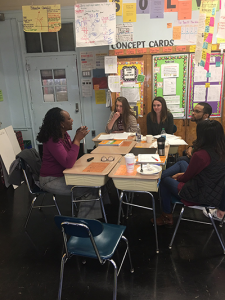
Job-Embedded Coaching:
On-going personalized classroom support designed to further develop teachers content and pedagogy through model lessons, co-teaching, planning, and pre-post conferencing.
This in-classroom application is then guided by an NTN Coach who has been carefully prepared to plan and reflect with teachers in the identification of needed areas of support for students and the implementation of these methodologies of instruction. The Coaches are prepared to incorporate pedagogical strategies aligned to the Standards for Mathematical Practice, model lessons in the classroom, co-teach, and to give feedback to teachers on methodology implementation when requested. Personalized coaching support includes, but not limited to;
- Modeling/team teaching lessons
- Team and individual curriculum and lesson planning and collaboration
- Supporting and adapting the current instructional materials to meet the needs of all learners
- Student Data collection and analysis
- Mentoring of teachers appropriate to individual levels of experience
- Constructively observing and providing feedback including data analysis
- Collecting student data to identify trends and increase engagement
- Providing tips specific to differentiating instruction based on formative assessment results
- Suggestions for inclusion of best practices Assisting in coordination efforts with ongoing professional development
- Providing support documentation of coaching visits and additional services
NTN professional development is ongoing and cyclical. Professional development has a positive impact on learning and teaching when it is ongoing and over a period of time. (Clarke,1994; OERI, 1999).
The Annenberg Institute for School Reform (2010) states; “Coaching shifts professional learning from direct instruction outside the context of practice (such as workshops and conferences) to more varied opportunities to improve discipline-specific practice. Most studies show that coaching leads to improvements in instructional capacity” (Professional Development Strategies that Improve Instruction, p.2).
In Cognitive Coaching: A Synthesis of the Research, Edwards (2016) identified eight outcomes that can be linked to Cognitive Coaching: (1) increase in student test scores and “other benefits to students,” (2) growth in teacher efficacy, (3) increase in reflective and complex thinking among teachers, (4) increase in teacher satisfaction with career and position, (5) increase in professional climate at schools, (6) increase in teacher collaboration, (7) increase in professional benefits to teachers and administrators, and (8) increase in personal benefits to teachers.
Citations
Clarke, D. (1994). Ten key principles from research for the professional development of mathematics teachers. In D.B. Aichele & A.F. Coxford (Eds.), Professional development for teachers of mathematics: 1994 yearbook, (pp.37-48). Reston, VA: National Council of Teachers of Mathematics.
Thinking Collaborative (2016). Cognitive Coaching: A Synthesis of the Research (12 ed.) Jenny Edwards, PhD. Retrieved from: http://www.thinkingcollaborative.com/wp-content/uploads/2016/02/Cognitive-Coaching-Fastback-Rev-February-2016.pdf
Annenberg Institute for School Reform. (2010). Professional Development Strategies that Improve Instruction, Instructional Coaching
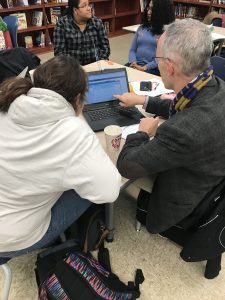
Data Analysis:
Analyzing qualitative and quantitative student data during an initials needs assessment and throughout the partnership to best determine areas of focus for all professional learning.
Data Analysis is an on-going process in which the NTN Coach will look at student data trends from formative and cumulative assessments throughout the partnership to help determine areas of focus for future training, planning, coaching, and professional learning communities. Additionally, NTN utilizes an observation tool for coaches, administrators, and select district administration, to collect and analyze qualitative data. This tool entitled ATLAS (Assisting Through Looking at Students) is designed to build data systems to measure student growth and success that inform teachers, principals, and instructional leaders about how they can improve student engagement and ultimately classroom instruction.
NTN professional development is designed to help teachers think about the processes of math and modeling for students how to work through those processes. Professional development is most effective when teachers are reflective in practice by identifying problems and questions, thinking about and discussing their work, gathering data, and using what they learn to inform their practice (Borasi & Fonzi, 2002; Thompson & Zeuli, 1999).
According to The Annenberg Institute for School Reform, “Effective coaching programs respond to particular needs suggested by data, allowing improvement efforts to target issues such as closing achievement gaps, supporting teachers across career stages, and advocating for equity (e.g., through differentiated instruction)” (Professional Development Strategies that Improve Instruction, p.3).
Citations
Borasi, R., & Fonzi, J. (2002). Foundations: Professional development that supports school mathematics reform [Vol. 3]. Arlington, VA: National Science Foundation.
Thompson, C.L., & Zeuli, J.S. (1999). The frame and the tapestry: Standards-based reform and professional development. In L. Darling-Hammond & G. Sykes (Eds.), Teaching as the learning profession: Handbook of policy and practice (pp. 341-375). San Francisco, CA: Jossey-Bass Publishers.
Annenberg Institute for School Reform. (2010). Professional Development Strategies that Improve Instruction, Instructional Coaching
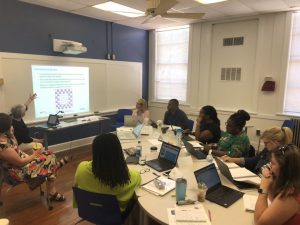
Professional Learning Communities:
Extended learning opportunities for teachers to analyze student work and collaborate on strategies to improve on the identified areas of need.
Teachers across schools work collaboratively throughout the year in Professional Learning Communities set up by NTN. During the PLC time, the emphasis is placed on teachers working collaboratively and creating solutions rather than having solutions simply provided for them. Participants will engage in performance and activity tasks and look at student samples to identify common misconceptions. In addition, participants will analyze student baseline data and collaborate on ways to improve through the provision of research-based practices, to achieve high expectations and rigor, looking at the different styles of learners.
NTN professional development is interactive. Professional development is highly effective when it provides teachers an opportunity to address questions about content within a group of their peers, focused on a content and subject matter. (Darling-Hammond & McLaughlin, 1995). NTN Professional development is based on incorporating the elements of effective learning. Professional development focused on how students learn specific content is more likely to impact teacher practice and student learning (Cohen & Hill, 1998).
Citations
Darling-Hammond, L., & McLaughlin, M.W. (1995). Policies that support professional development in an era of reform. Phi Delta Kappan, 76(8), 597-604.
Cohen, D.K., & Hill, H.C. (1998). Instructional policy and classroom performance: The mathematics reform in California. Philadelphia, PA: Consortium for Policy Research in Education.
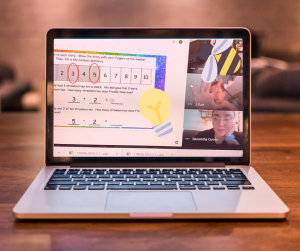
PD On-Demand:
Unlimited access to teacher notes and content videos demonstrating how grade level key concepts should be introduced through the use of multiple representations.
PD On-Demand gives teachers access to a set of grade-specific math professional development videos modeling the content and pedagogy central to teachers and students understanding each mathematical concept. These “just in time” training videos are available to support teachers in curriculum planning and understanding the strategies necessary to promote the CCSS- SMP’s.
In the United States, there are concerns about problems with elementary teacher subject expertise, and with the development opportunities teachers receive. For example, in 2008, Newton found that only 15 percent of teachers in preservice education were able to accurately describe a conceptually appropriate procedure for solving the problem 2/4 – 3/6. This means that 85 percent of preservice teachers were unable to demonstrate conceptual flexibility and mastery in addition to fractions, a vital concept throughout elementary and secondary education. (Newton, K.J., 2008) After completion of initial teacher education, expertise is still lacking. A 2014 report revealed that almost two-thirds of teachers think their teacher preparation programs left them unprepared for the realities of the classroom (Jensen, Roberts-Hull, & et.al, 2016, page 4).
Citations
Newton, K. J. (2008). An extensive analysis of preservice elementary teachers’ knowledge of fractions. American Educational Research Journal, 45(4), 1080–1110.
Ben Jensen, Katie Roberts-Hull, Jacqueline Magee, & Leah Ginnivan “Not So Elementary: Primary School Teacher Quality in Top-Performing Systems” (Washington DC: National Center on Education and the Economy, 2016)

Leadership Academies:
Professional Development for instructional leaders designed to build mathematics leadership at the classroom, school, and district level.
Leadership Academies are designed to build the capacity of each school and develop the administrators and instructional leadership teams understanding of what to look for in a mathematics classroom as it relates to the Standards for Mathematical Practice. Training and follow up support is provided to all instructional leaders to increase fidelity. Administrators and instructional leaders will participate in three (3) half-day training sessions (3 hours) throughout the school year:
- Day 1: NTN will introduce administrators to the ATLAS “look for’s” tool, and assign each administrator a log-in and password to access the template to collect data and generate reports for their individual schools. Additionally, administrators will collaborate about each element, as well as conduct some virtual walks together to practice using the ATLAS “look for’s” tool.
- Day 2: NTN will lead administrator teams on classroom walks utilizing the ATLAS “look for’s” tool and facilitate follow up conversations to discuss what they observed.
- Day 3: NTN will collaborate with administrators to analyze real ATLAS “look for’s” tool data collected throughout the school year to identify areas of focus
According to New Studies Dissect School Turnaround “Improving schools tended to combine strong leadership and data use with strategic teacher recruitment, management, and “intensive” professional development. Ms. Turnbull noted that most of the schools, regardless of whether or not they improved, said they used professional development, but researchers only counted that training as “intensive” if it was ongoing throughout the school year and designed to address the specific issues raised in the school’s turnaround plan. For example, turnaround schools were more likely to provide professional development specifically on how to analyze and use student data to improve instruction.” (Education Week, Sarah Sparks, 2012).
Citations
Sarah Sparks, “New Studies Dissect School Turnaround” (Education Week, 2012)
Anderson, C. W. (1989). The role of education in the academic disciplines in teacher education. In A. Woolforlk (Ed.), Research perspectives on the graduate preparation of teachers (pp. 88-107). Englewood Cliffs, NJ: Prentice Hall.
Ball, D. L. (1990). The mathematical understanding that prospective teachers bring to teacher education. The Elementary School Journal, 90, 449-466.
Boaler, J. & Staples, M. (2008). Creating mathematical futures through an equitable teaching approach: The case of Railside School. The Teachers College Record, 110(3), 608-645.
Borasi, R., & Fonzi, J. (2002). Foundations: Professional development that supports school mathematics reform [Vol. 3]. Arlington, VA: National Science Foundation.
Borko, H. (2004). Professional development and teacher learning: Mapping the terrain. Educational Researcher, 33, 3−15.
Borko, H., & Putnam, R. (1996). Learning to teach. In D. Berliner & R. Calfee (Eds.), Handbook of educational psychology (pp. 673-708). New York: Macmillan.
Boyle, J. R., & Weishaar, M. (1997). The effects of expert-generated versus student- generated cognitive organizers on the reading comprehension of students with learning disabilities. Learning Disabilities Research & Practice, 12(4), 228-235.
Burns, M. (2003) Using math games in your teaching. Connect, November-December 2003. Retrieved September 22, 2011 from synergylearning.org
Butler, F.M. Kit-hung Lee, Miller, S. P. & Pierce, T. (2001). Teaching mathematics to students with mild-to-moderate mental retardation: A review of the literature. Mental Retardation, 39, 1: 20–31.
Clarke, D. (1994). Ten key principles from research for the professional development of mathematics teachers. In D.B. Aichele & A.F. Coxford (Eds.), Professional development for teachers of mathematics: 1994 yearbook, (pp.37-48). Reston, VA: National Council of Teachers of Mathematics.
Cohen, D.K., & Hill, H.C. (1998). Instructional policy and classroom performance: The mathematics reform in California. Philadelphia, PA: Consortium for Policy Research in Education.
Darling-Hammond, L., & McLaughlin, M.W. (1995). Policies that support professional development in an era of reform. Phi Delta Kappan, 76(8), 597-604.
Devlin, K. (2000). Finding your inner mathematician. The Chronicle of Higher Education, 46, B5.
DuFour, R. (May, 2004). Schools as learning communities: What is a professional learning community? Educational Leadership, 61:8, 6-11.
Formative Assessment: Improving Learning in Secondary Classrooms. Policy Brief OECD Observer (November 2005): 1-8.
Fuchs, L. S., & Fuchs, D. (2002). What is scientifically-based research on progress monitoring? (Technical report). Nashville, TN: Vanderbilt University.
Garret, M.S., Porter, A.C., Desimone, L., Birman, P.F., & Yoon, K.S. (2001). What makes professional development effective? Results from a national sample of teachers. American Educational Research Journal, 38(4), 915-945.
Good, R., & Jefferson, G. (1998). Contemporary perspectives on curriculum-based measurement validity. In M. R. Shinn (Ed.), Advanced applications of curriculum-based measurement (pp. 61–88). New York: Guilford Press.
Harrison, M., Harrison, B. (1986). Developing numeration concepts and skills. Arithmetic Teacher, 33, 18–21.
Hatch, (2005) Using Games in the Classroom. This article is taken from the introduction to “Geometry Games”, a photocopiable resource published by The Association of Teachers of Mathematics http://nrich.maths.org/2928
Hudson, P., Lignugaris-Kraft, B., & Miller, T. Using content enhancements to improve the performance of adolescents with learning disabilities in content classes. Learning Disabilities Research & Practice, 8 (2), 106-126.
Kannold, T. (2005) Turning vision into action http://tkanold.blogspot.com/2011/08/let-homework-rules-begin-part-ii.html
Lambert, R. & Stylianou, D. (2013). Posing cognitively demanding tasks to all students. Mathematics Teaching the Middle School. 18(8).
Lambert, R. & Sugita, T. (2016). Increasing engagement of students with learning disabilities in mathematical problem-solving and discussion. Support for Learning, 31(4), 347-366. doe:10.1111/1467-9604.12142
Marzano, R., Pickering, D., Pollock, J. (2001). Classroom instruction that works: Research-based strategies for increasing student achievement. Alexandria, VA: ACSD
National Council of Teachers of Mathematics (NCTM) (1980). An Agenda for Action: Recommendations for School Mathematics of the 1980s. Reston, Virginia: National Council of Teachers of Mathematics.
National Council of Teachers of Mathematics (NCTM) (1989). Curriculum and Evaluation Standards for School Mathematics. Reston, Virginia: National Council of Teachers of Mathematics.
National Council of Teachers of Mathematics. (2000). Principles and standards for school mathematics. Reston, VA: National Council of Teachers of Mathematics.
National Governors Association Center for Best Practices, & Council of Chief State School Officers. (2010). Common Core State Standards for mathematics: Standards for Mathematical Practice
Newell A, Rosenbloom P. S. (1981). Mechanisms of skill acquisition and the law of practice. In: Anderson J R (ed.) Cognitive Skills and their Acquisition. Erlbaum, Hillsdale, NJ, pp. 1-51.
Nicol, David J. & Macfarlane-Dick, Debra (2006); Formative assessment and self-regulated learning: a model and seven principles of good feedback practice. Students in High Education, 31:2, 199-218.
Office of Educational Research and Improvement. (1999). National awards program for model professional development. Washington, DC: U.S. Department of Education.
Porzio, D. T. (1994). The effects of differing technological approaches to calculus on students’ use and understanding of multiple representations when solving problems. Dissertation Abstracts International, 55(10), 3128A. (University Microfilms No. AAI 9505274).
Research Spotlight on Homework. http://www.nea.org/tools/16938.htm. Retrieved 9/22/2011 NEA Reviews of the Research on Best Practices in Education.
Safer, N. and Fleischman, S. (2005). Research matters: how student progress monitoring improves instruction. Educational Leadership – How Schools Improve, 62, 81-83.
Thompson, C.L., & Zeuli, J.S. (1999). The frame and the tapestry: Standards-based reform and professional development. In L. Darling-Hammond & G. Sykes (Eds.), Teaching as the learning profession: Handbook of policy and practice (pp. 341-375). San Francisco, CA: Jossey-Bass Publishers.
Wilson, J., Fernandez, M., & Hadaway, N. (1993) Mathematical problem solving. Retrieved from University of Georgia, Department of Mathematics Education EMAT 4600/6600 Website: http://jwilson.coe.uga.edu/emt725/PSsyn/PSsyn.html
Witzel, B.S. (2005). Using CRA to teach algebra to students with math difficulties in inclusive settings. Learning Disabilities: A Contemporary Journal, 3(2), 53-64.
Witzel, B. S., Mercer, C. D., & Miller, M. D. (2003). Teaching algebra to students with learning difficulties: An investigation of an explicit instruction model. Learning Disabilities Research and Practice, 18, 121-131.
